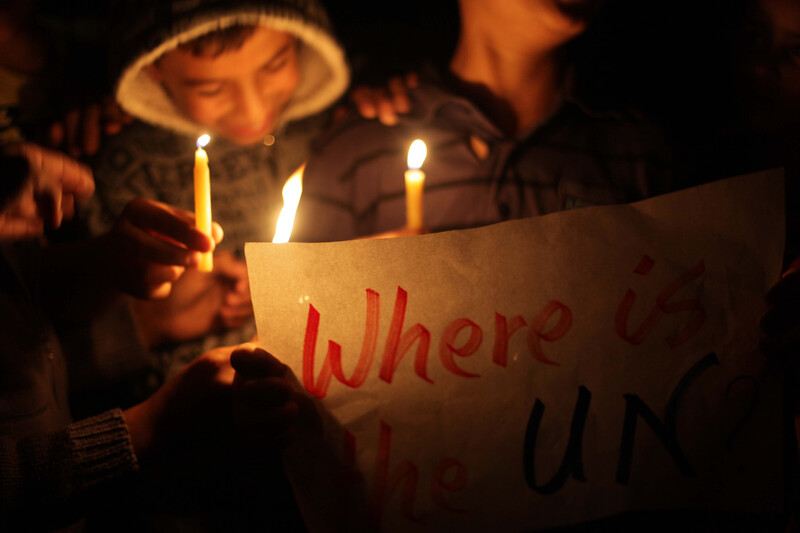The Electronic Intifada Gaza Strip 11 December 2013

Palestinian children hold candles during a protest against power cuts in Gaza City, 3 November.
APA imagesIt is after 10pm. Electricity was cut off in our house eight hours ago. At last, I am able to do a little work, thanks to an “uninterruptible power supply” (UPS) battery.
For more than a month now, I have been unable to function as a journalist should.
Gaza’s power crisis has led me to constantly search for a solution to the regular blackouts in my home. Yet I am still struggling to cope. I have no idea what to do.
Before the situation deteriorated even further last month, I used to rely on a power generator that ran whenever the electricity was cut. Those power outages tended to last for six to eight hours. Yet since early November, Gaza has generally been without power for 12 to 16 hours a day — and sometimes even longer.
I used to buy the fuel needed for the generator in the local market. But the market hasn’t had adequate supplies of this fuel — brought from Egypt through underground tunnels — for about six months.
Twice the price
The scarcity of this fuel has meant that I have had to buy fuel imported from Israel. It was twice the price of the fuel I had previously bought.
After our problems became more severe last month, I managed to get a power saving unit, hoping that it would provide a vital stop-gap. In the present circumstances, it is useless. To operate properly, it needs a constant current for at least ten hours a day. In Gaza, we only have a daily current of six hours.
When my children need light in their rooms to do their homework, there isn’t enough power for me to use my desktop computer. My laptop broke down recently, so using it isn’t an option.
Electricity won’t be restored to my home until 2am — about four hours from now. I am determined to write now that I can. Yet I am worried that my battery could lose its charge at any moment.
I don’t have any choice than to persevere as best I can. I have to take care of my five-member family, including my wife who is unwell.
Journalism is my main source of income. But for the past month, I have been very hesitant to pitch story ideas to editors because I haven’t been certain that I would be able to meet deadlines.
Unsure
Each Friday, I compile an audio report for a website in the occupied West Bank. When my colleague there calls to check that I can get the report to him on time, I try to reassure him that it will be fine. But lately, I haven’t been at all sure that I will be able to do so.
Earlier today, I attended a press conference in Gaza City during which civil servants provided information about the power crisis. I intended to come home and write a report on the press conference. But the power was already gone when I arrived back. This put me in a bad mood.
Of course, the crisis isn’t just hampering my work. It affects our whole family. Washing laundry takes my wife one or two days, where before it took just a few hours.
Preparing meals is also increasingly difficult. We no longer put perishable food in the refrigerator because we fear that it will go off.
The TV set at my home is shut down. My seven-year-old son Mohammad no longer lies down in his preferred corner of our living room to watch his favorite cartoon <em>Ben 10.</em>
Munir, my 14-year-old son, asked me, “Dad, why don’t we have a regular current like they have in many other countries? You and Mom went to a hospital in Jerusalem recently. Was the electricity cut off there?”
I couldn’t think of a good answer. All I could say was: “We live in Gaza.”
Rami Almeghari is a journalist and university lecturer based in the Gaza Strip.





